Ida e Augusta
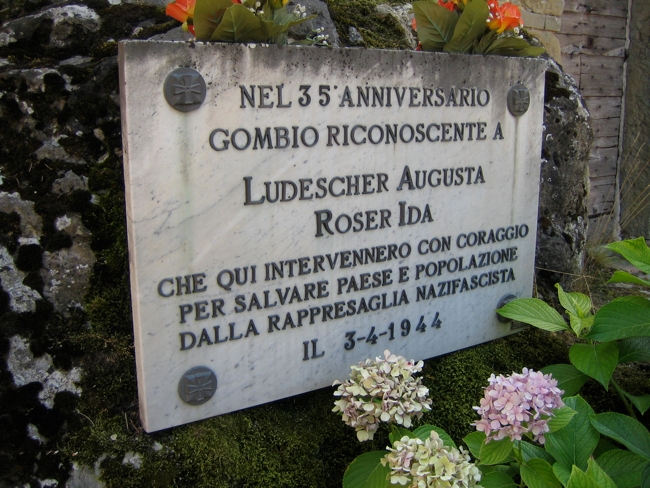
Siamo Ida e Augusta, le due tedesche di Gombio.
(Continues)
(Continues)
Contributed by adriana 2019/4/26 - 11:27
Song Itineraries:
Resistance against Nazi-Fascism in Italy and Europe
L'Internationale
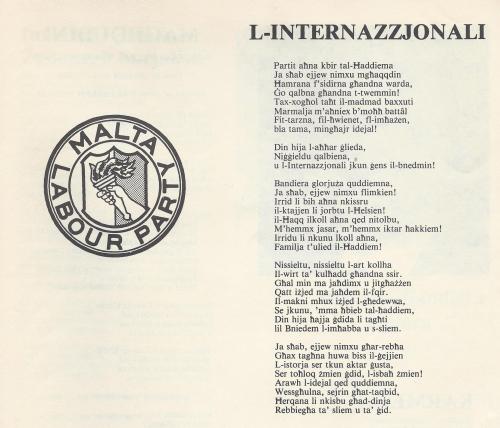
MALTESE / MALTESE
The Maltese version seems to be heavily based on the Italian version, which makes sense due to the proximity of the two countries.
The highest fidelity version can be found here:
L-Internazzjonali
Here is an image of the original source of the lyrics:
Lyrics
They have been modified slightly as to match the version played in the previously mentioned video.
The highest fidelity version can be found here:
L-Internazzjonali
Here is an image of the original source of the lyrics:
Lyrics
They have been modified slightly as to match the version played in the previously mentioned video.
L-INTERNAZZJONALI
(Continues)
(Continues)
Contributed by Alec 2019/4/25 - 22:01
Le Procès-verbal
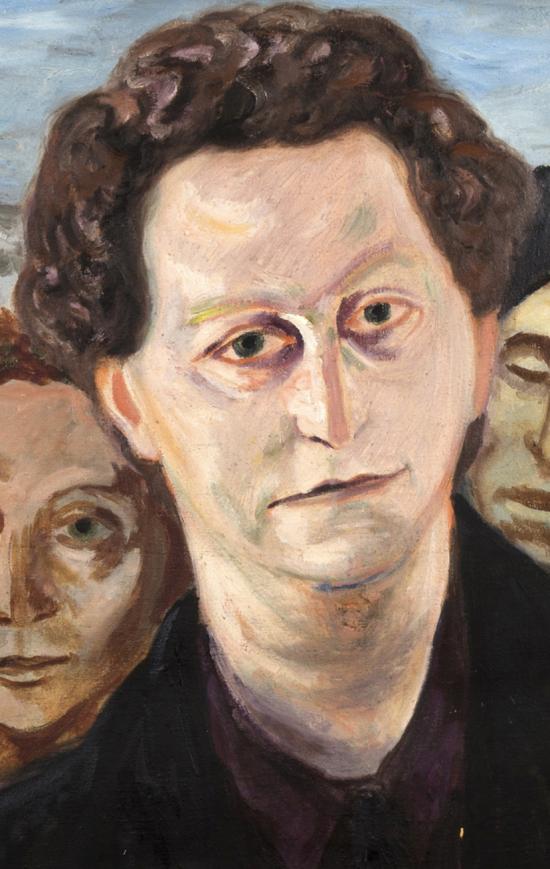
Le Procès-verbal
Lettre de prison 24
31 mai 1935
Dialogue Maïeutique
La chanson, Lucien l’âne mon ami, s’intitule « Le Procès Verbal ». Et il me vient à l’esprit soudain cette question : « Combien y a-t-il de procès-verbaux dans le monde chaque heure, chaque jour, chaque année et ainsi de suite et dans toutes les autres ? ». J’en ai la tête qui chavire et plus encore quand je pense qu’ils sont tous conservés dans des archives.
Ah, les archives, Marco Valdo M.I. mon ami, j’en ai le tournis. Si on les empile à un endroit, elles doivent être plus grandes que l’Himalaya et dire que certains craignent les inondations ou les mouvements tectoniques qui engendrent les montagnes et les plissements de terrain. Mais les archives seront bien plus rapides, car nourries par les procès verbaux, copieusement, elles vont bientôt nous submerger, tous. C’est le délire de l’humanité de vouloir tout conserver... (Continues)
Lettre de prison 24
31 mai 1935
Dialogue Maïeutique
La chanson, Lucien l’âne mon ami, s’intitule « Le Procès Verbal ». Et il me vient à l’esprit soudain cette question : « Combien y a-t-il de procès-verbaux dans le monde chaque heure, chaque jour, chaque année et ainsi de suite et dans toutes les autres ? ». J’en ai la tête qui chavire et plus encore quand je pense qu’ils sont tous conservés dans des archives.
Ah, les archives, Marco Valdo M.I. mon ami, j’en ai le tournis. Si on les empile à un endroit, elles doivent être plus grandes que l’Himalaya et dire que certains craignent les inondations ou les mouvements tectoniques qui engendrent les montagnes et les plissements de terrain. Mais les archives seront bien plus rapides, car nourries par les procès verbaux, copieusement, elles vont bientôt nous submerger, tous. C’est le délire de l’humanité de vouloir tout conserver... (Continues)
Un critique d’art du futur
(Continues)
(Continues)
Contributed by Marco Valdo M.I. 2019/4/25 - 16:50
Poesia facile
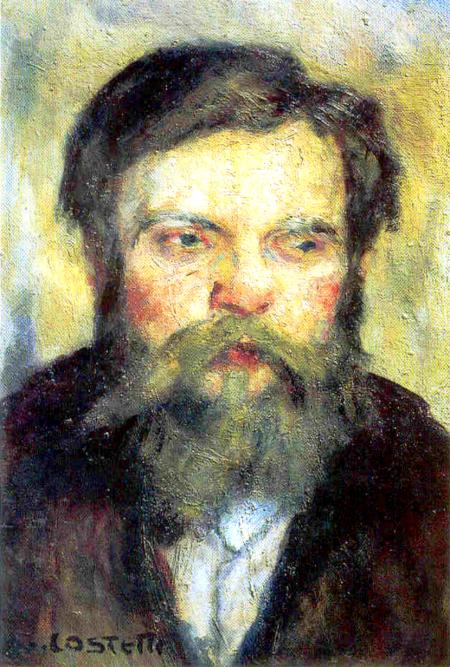
Chanson italienne – Poesia facile – Massimiliano Larocca – 2015
Poème de Dino Campana [1928]
Tiré des Canti Orfici (édition à compte d’auteur – Firenze 1914
Musique : Massimiliano Larocca
Interprétation : Massimiliano Larocca
Voix et guitare ténor : Cesare Basile
Album : Un mistero di sogni avverati [2015]
Le poète Dino Campana, né le 20 août 1885 à Marradi, en Toscane romagnole, aurait été fou, dit-on. Comme il y a maintenant beaucoup de biographies de ce grand poète, philologiquement correctes ou romancées (ainsi que des films et des scénarios), je n’en ajouterai certainement pas une autre, je ne parlerai pas de son célèbre et grand amour avec Sibilla Aleramo et ça se terminera que je ne dirai même pas qu’il est mort, vraiment là à l’asile, le 1er mars 1932 à Castelpulci près de Lastra a Signa, à deux pas de la villa (appartenant au ténor Enrico Caruso), qui vit beaucoup de sa relation... (Continues)
Poème de Dino Campana [1928]
Tiré des Canti Orfici (édition à compte d’auteur – Firenze 1914
Musique : Massimiliano Larocca
Interprétation : Massimiliano Larocca
Voix et guitare ténor : Cesare Basile
Album : Un mistero di sogni avverati [2015]
Le poète Dino Campana, né le 20 août 1885 à Marradi, en Toscane romagnole, aurait été fou, dit-on. Comme il y a maintenant beaucoup de biographies de ce grand poète, philologiquement correctes ou romancées (ainsi que des films et des scénarios), je n’en ajouterai certainement pas une autre, je ne parlerai pas de son célèbre et grand amour avec Sibilla Aleramo et ça se terminera que je ne dirai même pas qu’il est mort, vraiment là à l’asile, le 1er mars 1932 à Castelpulci près de Lastra a Signa, à deux pas de la villa (appartenant au ténor Enrico Caruso), qui vit beaucoup de sa relation... (Continues)
POÉSIE FACILE
(Continues)
(Continues)
Contributed by Marco Valdo M.I. 2019/4/25 - 11:16
Das Lied Der Obdachlosen

LA CANZONE DEI SENZATETTO
(Continues)
(Continues)
Contributed by Francesco Mazzocchi 2019/4/25 - 10:22
Poesia facile

Sonya Gray Redi
InTranslation / Poetry by Dino Campana
InTranslation / Poetry by Dino Campana
Dino Campana (1885-1932) was an innovative Italian poet. His controversial writings are captured in his only published book of poetry, the emotionally intense and visionary Canti Orfici (“Orphic Songs”). The prime Italian example of a poète maudit, Campana battled mental health problems from an early age and spent a great deal of his youth in and out of lunatic asylums and traveling across Europe. An autodidact, he taught himself several languages and became part of the thriving literary scene in Florence. He composed the poems for Canti Orfici sometime between 1906 and 1913, and self-published them in 1914. Shortly after, Campana began a notorious and tumultuous love affair with Sibilla Aleramo, the author of Una donna. In 1918, Campana was admitted to a psychiatric hospital near Florence where he remained until his death in 1932. His remains were given a proper burial in 1946 in a ceremony attended by many Italian intellectuals, including Eugenio Montale and Carlo Bo.
EASY POEM
(Continues)
(Continues)
Contributed by Riccardo Venturi 2019/4/24 - 20:22
Moderne Legende

Francesco Mazzocchi
LEGGENDA MODERNA
(Continues)
(Continues)
Contributed by Francesco Mazzocchi 2019/4/24 - 20:20
Canção da terra
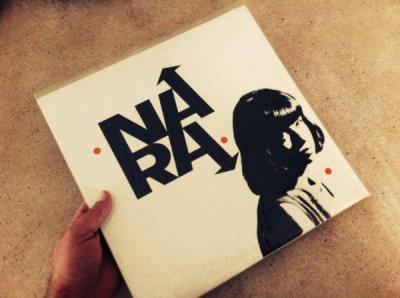
[1964]
Scritta da Edu Lobo e Ruy Guerra
Nell'album d'esordio di Nara Leão, intitolato semplicemente "Nara"
Scritta da Edu Lobo e Ruy Guerra
Nell'album d'esordio di Nara Leão, intitolato semplicemente "Nara"
Olorum dê
(Continues)
(Continues)
Contributed by Bernart Bartleby 2019/4/23 - 23:03
Pequenos deuses caseiros
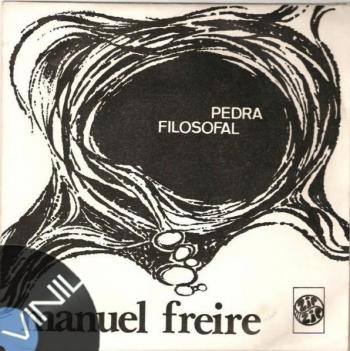
[1974]
Versi dello scrittore e poeta portoghese Sidónio Muralha (1920-1982), nella raccolta "Poemas de Abril", pubblicata nel 1974
Musica di Manuel Freire, nel suo album del 1993 intitolato "Pedra filosofal".
Versi dello scrittore e poeta portoghese Sidónio Muralha (1920-1982), nella raccolta "Poemas de Abril", pubblicata nel 1974
Musica di Manuel Freire, nel suo album del 1993 intitolato "Pedra filosofal".
Pequenos deuses caseiros
(Continues)
(Continues)
Contributed by Bernart Bartleby 2019/4/23 - 22:42
Walter Fillak
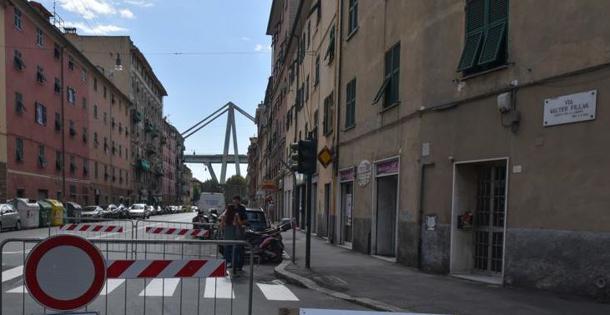
[23 aprile 2019]
Testo / Lyrics / Paroles / Sanat: Anonimo Toscano del XXI Secolo
Walter Fillak, nato a Torino il 10 giugno 1920, fu ben presto genovese. Studente liceale al Gian Domenico Cassini, fu espulso per motivi politici. Nel 1942, arrestato e deferito al Tribunale Speciale fascista; incarcerato poi a Regina Coeli, a Roma. Nel 1943 entra nei GAP con il nome di battaglia di “Gennaio”; diviene commissario politico della III Brigata Garibaldi “Liguria”. Raggiunge poi la Valle d'Aosta, dove combatte con il nome di battaglia di “Martin”; guida numerosi scontri con i Repubblichini nel Canavese e nel Biellese. Catturato a causa di una spiata assieme all'intero comando partigiano, viene condotto all'impiccagione dai nazifascisti. La mattina dell'esecuzione, la corda si spezza; i nazisti non hanno nessuna pietà, si procurano una nuova corda e portano a termine l'impiccagione. E' il 5 febbraio... (Continues)
Testo / Lyrics / Paroles / Sanat: Anonimo Toscano del XXI Secolo
Walter Fillak, nato a Torino il 10 giugno 1920, fu ben presto genovese. Studente liceale al Gian Domenico Cassini, fu espulso per motivi politici. Nel 1942, arrestato e deferito al Tribunale Speciale fascista; incarcerato poi a Regina Coeli, a Roma. Nel 1943 entra nei GAP con il nome di battaglia di “Gennaio”; diviene commissario politico della III Brigata Garibaldi “Liguria”. Raggiunge poi la Valle d'Aosta, dove combatte con il nome di battaglia di “Martin”; guida numerosi scontri con i Repubblichini nel Canavese e nel Biellese. Catturato a causa di una spiata assieme all'intero comando partigiano, viene condotto all'impiccagione dai nazifascisti. La mattina dell'esecuzione, la corda si spezza; i nazisti non hanno nessuna pietà, si procurano una nuova corda e portano a termine l'impiccagione. E' il 5 febbraio... (Continues)
«Mio caro papà,
(Continues)
(Continues)
2019/4/23 - 21:05
Song Itineraries:
Bridges, Resistance against Nazi-Fascism in Italy and Europe
La guerre, c'est la misère
Anonymous
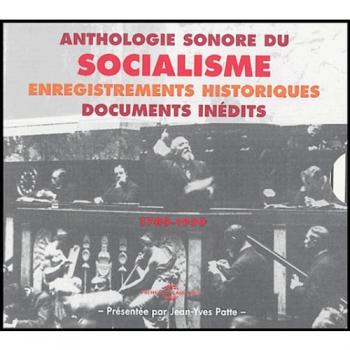
Trovo questo testo su WikiParoles, associato ad un gruppo denominato Furens, del quale non ho altra informazione se non quella, deducibile da Discogs, che ha partecipato ad un paio di antologie della canzone francese dei primi due decenni del 900.
Credo quindi che si tratti del testo datato 1930 e interpretato da tal Georges Gratias nella raccolta "Anthologie sonore du socialisme [1789-1939]" edita da Frémeaux nel 1998.
Anche di Georges Gratias non so nulla, tranne che fu autore di ambito socialista e vicino al Front Populaire.
Credo quindi che si tratti del testo datato 1930 e interpretato da tal Georges Gratias nella raccolta "Anthologie sonore du socialisme [1789-1939]" edita da Frémeaux nel 1998.
Anche di Georges Gratias non so nulla, tranne che fu autore di ambito socialista e vicino al Front Populaire.
Sur la plaine aux grands blés mouvants
(Continues)
(Continues)
Contributed by Bernart Bartleby 2019/4/23 - 14:48
Le pauvre laboureur
Anonymous

Una canzone tradizionale del Jura francese (Bourgogne-Franche-Comté)
Come tutte le canzoni popolari, anche questa è riscontrabile in molteplici versioni
La registrazione più vecchia che mi è riuscito di trovare è datata 1930, interpretata da tal Reynaldo Hahn nella raccolta "Anthologie sonore du socialisme [1789-1939]" edita da Frémeaux nel 1998.
Sta anche nel secondo LP de La Bamboche, "Jeu à monter sans colle" del 1976
Come tutte le canzoni popolari, anche questa è riscontrabile in molteplici versioni
La registrazione più vecchia che mi è riuscito di trovare è datata 1930, interpretata da tal Reynaldo Hahn nella raccolta "Anthologie sonore du socialisme [1789-1939]" edita da Frémeaux nel 1998.
Sta anche nel secondo LP de La Bamboche, "Jeu à monter sans colle" del 1976
Qui veut savoir la vie
(Continues)
(Continues)
Contributed by Bernart Bartleby 2019/4/23 - 13:58
Song Itineraries:
The War of Labour: Emigration, Immigration, Exploitation, Slavery
Son proletari i partigiani

Mi sbaglio o la melodia è almeno molto simile alla (successiva) R60?
Emanuela 2019/4/23 - 09:56
The Ballad of Nick & Bart [Here's To You]
![The Ballad of Nick & Bart [Here's To You]](img/thumb/c3392_130x140.jpeg?1328224498)
Testo in francese di Georges Moustaki; in catalano e spagnolo di Joan Isaac; in italiano di Sergio Secondiano Sacchi
HERE'S TO YOU
(Continues)
(Continues)
2019/4/22 - 23:36
I treni per Reggio Calabria
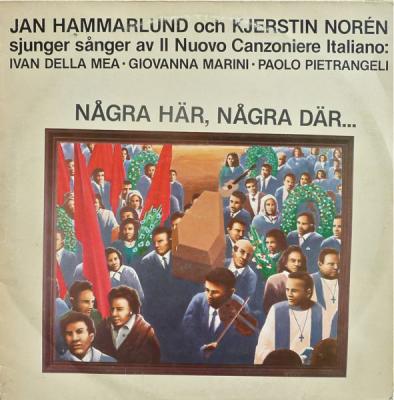
Tågen till Reggio Kalabrien: La versione svedese di Kjerstin Norén e Jan Hammarlund dall'album Några här, några där (1981)
Tågen till Reggio Kalabrien: den svenska versionen av Kjerstin Norén och Jan Hammarlund från albumet Några här, några där (1981)
Tågen till Reggio Kalabrien: the Swedish version by Kjerstin Norén and Jan Hammarlund from the album Några här, några där (1981)
Tågen till Reggio Kalabrien: la version suédoise de Kjerstin Norén et Jan Hammarlund tirée de l'album Några här, några där (1981)
Tågen till Reggio Kalabrien: Kjerstin Norénin ja Jan Hammarlundin ruotsinkielinen versio albumista Några här, några där (1981)
Una straordinaria trouvaille del nostro Webmaster, Lorenzo Masetti: cercando, a suo dire, una “fantomatica versione di Contessa in svedese” citata in un “libro sul '68”, si è imbattuto in un album intero di canzoni di lotta e proletarie italiane degli anni '60... (Continues)
Tågen till Reggio Kalabrien: den svenska versionen av Kjerstin Norén och Jan Hammarlund från albumet Några här, några där (1981)
Tågen till Reggio Kalabrien: the Swedish version by Kjerstin Norén and Jan Hammarlund from the album Några här, några där (1981)
Tågen till Reggio Kalabrien: la version suédoise de Kjerstin Norén et Jan Hammarlund tirée de l'album Några här, några där (1981)
Tågen till Reggio Kalabrien: Kjerstin Norénin ja Jan Hammarlundin ruotsinkielinen versio albumista Några här, några där (1981)
Una straordinaria trouvaille del nostro Webmaster, Lorenzo Masetti: cercando, a suo dire, una “fantomatica versione di Contessa in svedese” citata in un “libro sul '68”, si è imbattuto in un album intero di canzoni di lotta e proletarie italiane degli anni '60... (Continues)
Tågen till Reggio Calabria
(Continues)
(Continues)
Contributed by CCG/AWS Staff 2019/4/22 - 22:48
La Suisse
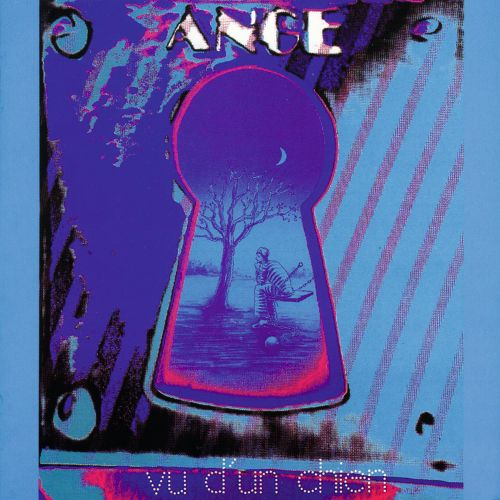
[1980]
Parole e musica di Christian e Francis Décamps
Nell'album "Vu d'un chien", il settimo per questo gruppo rock progressive francese
Testo trovato qui
Parole e musica di Christian e Francis Décamps
Nell'album "Vu d'un chien", il settimo per questo gruppo rock progressive francese
Testo trovato qui
Je suis pas l’genre de caractère
(Continues)
(Continues)
Contributed by Bernart Bartleby 2019/4/22 - 21:39
Song Itineraries:
Deserters
Les cent quatre vingt pucelles
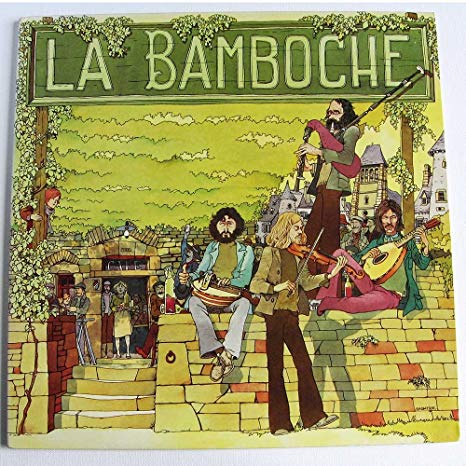
[1975]
Una canzone tradizionale della Normandia ripresa e riarrangiata da Jean Blanchard de La Bamboche
Dall'album d'esordio del gruppo folk di Lione
Non so con esattezza a quale epoca risalga la canzone, probabilmente all'invasione inglese di Enrico V all'inizio del 400...
Una canzone tradizionale della Normandia ripresa e riarrangiata da Jean Blanchard de La Bamboche
Dall'album d'esordio del gruppo folk di Lione
Non so con esattezza a quale epoca risalga la canzone, probabilmente all'invasione inglese di Enrico V all'inizio del 400...
A Rouen il y a
(Continues)
(Continues)
Contributed by Bernart Bartleby 2019/4/22 - 21:06
Song Itineraries:
From olden times: Songs against war, inside war, around war
Über Gewalt

Francesco Mazzocchi
SULLA VIOLENZA
(Continues)
(Continues)
Contributed by Francesco Mazzocchi 2019/4/22 - 20:48
Fabrizio De André: Dolcenera

@Juha Rämö & Krzysiek Wrona
The Greek lyrics by Christos Thivaios are largely a rewriting of the song in Greek (the title itself, Μαύρο μαργαριτάρι, means “Black Pearl”). I think I'll provide an English translation of the Greek translation to show how it works. I can say Christos Thivaios is a translation genius, anyway: not only had he to cope with a very difficult and multi-faceted poetical text, but also with his own language, Greek, that is characterized by a different tempo, by usually long, uncut words and, like Italian (Finnish, Polish), by vowels that are clearly pronounced in any position (but Greek makes no distinction between long and short vowels, and this is very important in a poetical and musical translation). The same, I say, holds for Krzysiek Wrona's Polish translation: both Christos and Krzysiek have made a true tour de force to bend their languages to a song text like this. And this is also a tribute to skilled translators who put love in what they are doing.
The Greek lyrics by Christos Thivaios are largely a rewriting of the song in Greek (the title itself, Μαύρο μαργαριτάρι, means “Black Pearl”). I think I'll provide an English translation of the Greek translation to show how it works. I can say Christos Thivaios is a translation genius, anyway: not only had he to cope with a very difficult and multi-faceted poetical text, but also with his own language, Greek, that is characterized by a different tempo, by usually long, uncut words and, like Italian (Finnish, Polish), by vowels that are clearly pronounced in any position (but Greek makes no distinction between long and short vowels, and this is very important in a poetical and musical translation). The same, I say, holds for Krzysiek Wrona's Polish translation: both Christos and Krzysiek have made a true tour de force to bend their languages to a song text like this. And this is also a tribute to skilled translators who put love in what they are doing.
Riccardo Venturi 2019/4/22 - 12:49
Lob des Revolutionärs

Francesco Mazzocchi
ELOGIO DEL RIVOLUZIONARIO
(Continues)
(Continues)
Contributed by Francesco Mazzocchi 2019/4/22 - 09:27
Baba O'Riley

Wasteland è anche il titolo di un poema di Thomas S. Eliot, che in italiano è tradotto come La Terra desolata.
Io avrei pensato a
It's only teenage wasteland
È solo un adolescente in una terra desolata.
Questo perché credo che il soggetto sia teenage
oltretutto è al singolare e non al plurale).
Se il soggetto fosse la terra desolata
È solo una terra desolata per l'adolescente.
Grazie per il lavoro che fate.
Riccardo DV
Io avrei pensato a
It's only teenage wasteland
È solo un adolescente in una terra desolata.
Questo perché credo che il soggetto sia teenage
oltretutto è al singolare e non al plurale).
Se il soggetto fosse la terra desolata
È solo una terra desolata per l'adolescente.
Grazie per il lavoro che fate.
Riccardo DV
Riccardo DV 2019/4/22 - 02:04
McDonald Trump

(2019)
Album Soundtrack To The Struggle 2
In, McDonald Trump, Lowkey is doing what he is most popular for: Calling out the bad politicians. But especially in this one you could see him more vigorous and aggressive than ever. Similar to Obama Nation, Lowkey decides to point out all the negatives in Trump that people might not have noticed yet.
genius
Come McDonald, Trump ti nutre con la spazzatura.
Album Soundtrack To The Struggle 2
In, McDonald Trump, Lowkey is doing what he is most popular for: Calling out the bad politicians. But especially in this one you could see him more vigorous and aggressive than ever. Similar to Obama Nation, Lowkey decides to point out all the negatives in Trump that people might not have noticed yet.
genius
Come McDonald, Trump ti nutre con la spazzatura.
McDonald Trump, Mc-McDonald Trump
(Continues)
(Continues)
2019/4/22 - 00:01
Song Itineraries:
Donald Trump
Long Live Palestine Part 3

(2019)
Album Soundtrack To The Struggle 2
Featuring Khaled Siddique, Chaka Bars, Mai Khalil, Frankie Boyle, Ken Loach & Maverick Sabre
Sample: “Cockney Violin”, by Caspa.
L'introduzione è tratta da una poesia del poeta palestinese Mahmud Darwish
Album Soundtrack To The Struggle 2
Featuring Khaled Siddique, Chaka Bars, Mai Khalil, Frankie Boyle, Ken Loach & Maverick Sabre
Sample: “Cockney Violin”, by Caspa.
L'introduzione è tratta da una poesia del poeta palestinese Mahmud Darwish
[Intro: Frankie Boyle & Chakabars]
(Continues)
(Continues)
2019/4/21 - 23:49
Song Itineraries:
The Palestinian Holocaust
Soundtrack to the Struggle 2
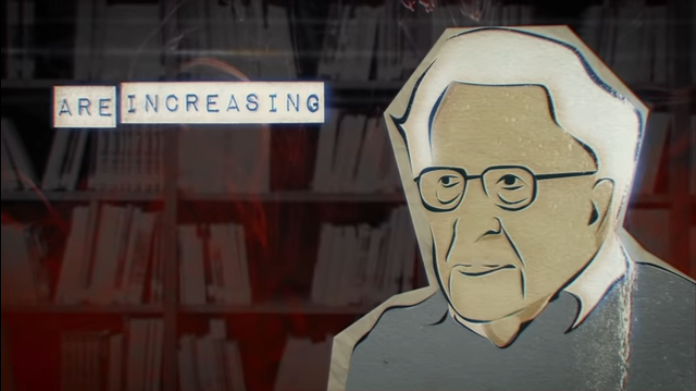
Featuring Noam Chomsky
Album Soundtrack To The Struggle 2 (2019)
Testo da genius
Album Soundtrack To The Struggle 2 (2019)
Testo da genius
Soundtrack To The Struggle 2 is the opening song from the album of the same name.
This song focuses on how monetary/corporate greed heavily outweighs the value of human lives in todays society.
The song features an excerpt from a conversation that Lowkey had with renowned philosopher Noam Chomsky, in which Noam explains why civilization is not likely to survive capitalism.
This song focuses on how monetary/corporate greed heavily outweighs the value of human lives in todays society.
The song features an excerpt from a conversation that Lowkey had with renowned philosopher Noam Chomsky, in which Noam explains why civilization is not likely to survive capitalism.
Soundtrack To The Struggle 2 è la traccia d'apertura dall'album dallo stesso nome.
Il tema della canzone è che l'avidita delle imprese e della finanza prevale largamente sul valore della vita umana sulla societa odierna.
La canzone include un estratto da una conversazione che Lowkey ha avuto con il celebre filosofo Noam Chomsky, in cui Noam spiega perché la civilizzazione probabilmente non sopravvivrà al capitalismo.
Il tema della canzone è che l'avidita delle imprese e della finanza prevale largamente sul valore della vita umana sulla societa odierna.
La canzone include un estratto da una conversazione che Lowkey ha avuto con il celebre filosofo Noam Chomsky, in cui Noam spiega perché la civilizzazione probabilmente non sopravvivrà al capitalismo.
[Intro: Noam Chomsky, Lowkey]
(Continues)
(Continues)
Contributed by Lorenzo 2019/4/21 - 23:34
×
![]()



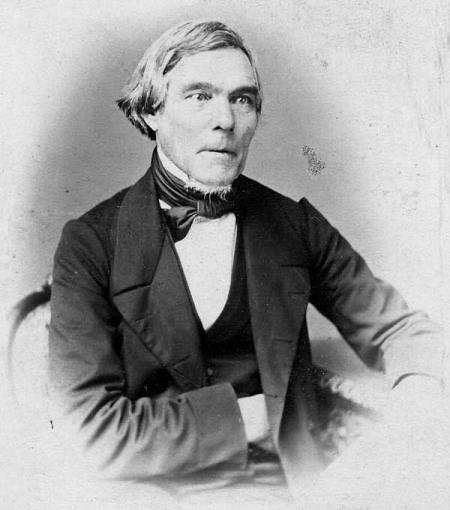
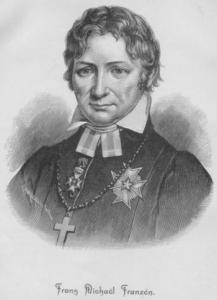
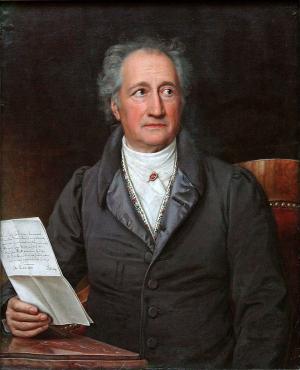

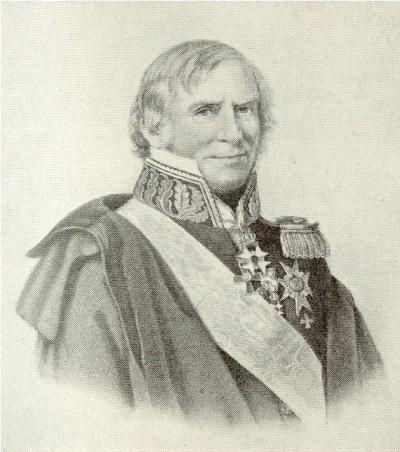
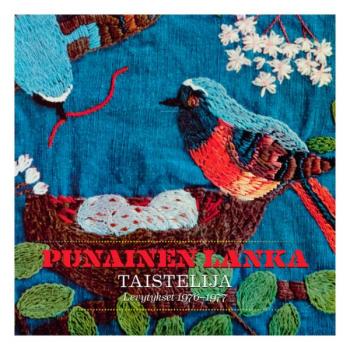

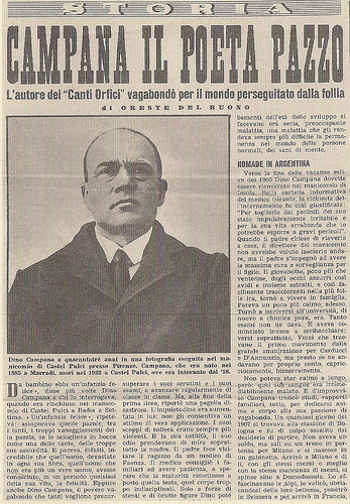


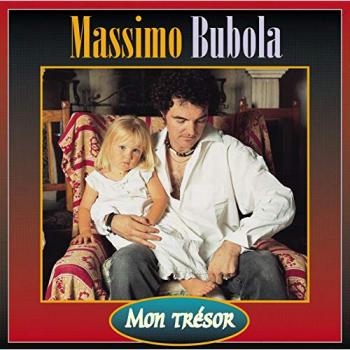
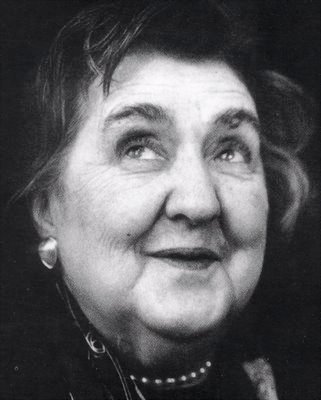
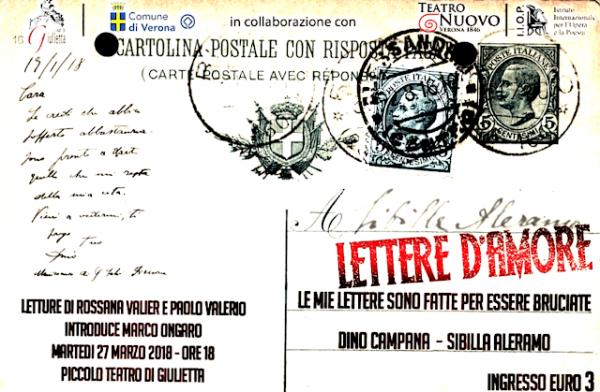

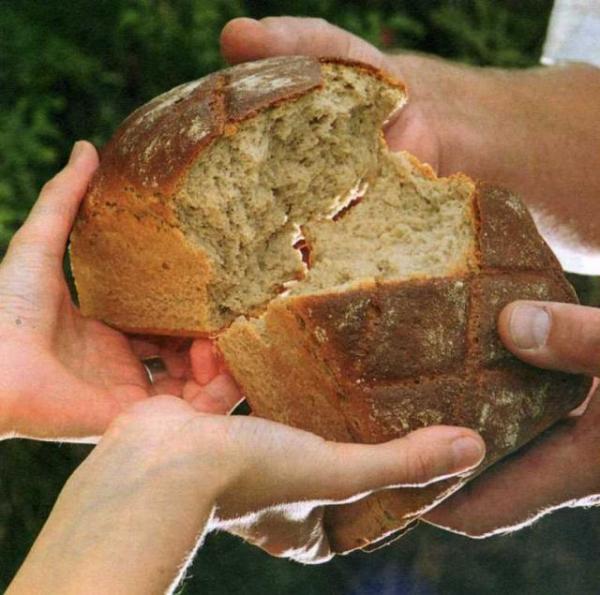

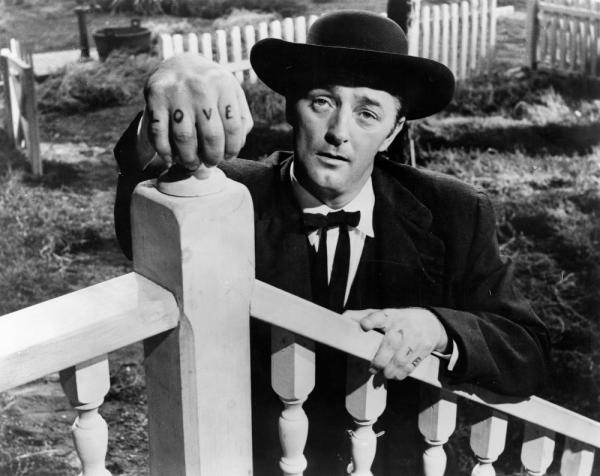
![Vapenlös [Jag vill möta...]](img/upl/hammarmarsch.jpg)
![Vapenlös [Jag vill möta...]](img/upl/vidkajen.jpg)
![Vapenlös [Jag vill möta...]](img/upl/vapenloes.jpg)

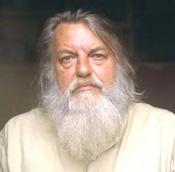

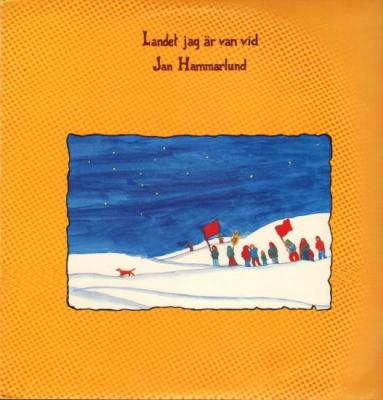

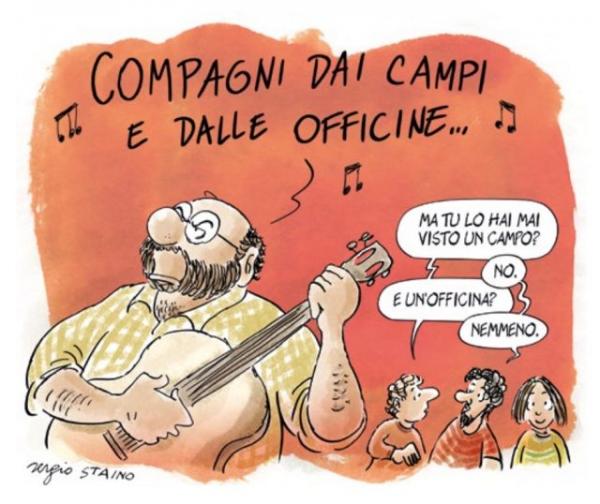
Album : Servizio d'ordine
Il racconto “Ida e Augusta” è stato scritto da Arturo Bertoldi ed è tratto dal libro
"Perché i vivi non ricordano gli occhi di…" pubblicato nel 2013 dall’Istituto Storico della Resistenza di Reggio Emilia nell’ambito del progetto “Viaggio della memoria”.
Augusta Ludäscher e Ida Roser
Nell’aprile del 1944 grazie a due donne Augusta Ludäscher e Ida Roser una strage annunciata fu evitata nel paese di Gombio.
La storia
Il 3 aprile 1944 inizia il rastrellamento di Gombio condotto da militari tedeschi della divisione Hermann Göring accompagnati da due compagnie della Guardia nazionale repubblicana di Reggio. I tedeschi erano gli stessi che avevano effettuato, due settimane prima, il rastrellamento e la strage di Cervarolo. Proseguendo il rastrellamento della montagna alla ricerca delle formazioni partigiane, erano giunti a Gombio, oggi frazione di Castelnovo... (Continues)